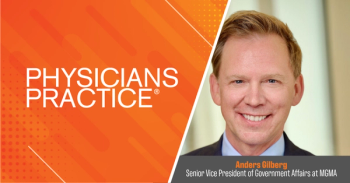
Don't ignore these whistleblower items
Practices must prepare for stricter fraud reporting and compliance as the DOJ Corporate Whistleblower Awards Pilot Program and bipartisan AI Whistleblower Protection Act expand protections beyond the False Claims Act.
When most people think of a whistleblower bringing information regarding fraud to the government in exchange for a portion of the recovery, as well as related whistleblower protections, the False Claims Act, 31 U.S.C. §§3729-3733 (FCA), usually comes to mind. Rightly so, the FCA was passed by Congress and signed into law in 1863. Its primary purpose is to enable private citizens, through its qui tam provision, to assist in the return of ill-gotten payments to the Federal Fisc (and in some cases, respective States, too).
On August 1, 2024, the U.S. Department of Justice (DOJ) announced the Corporate Whistleblower Awards Pilot Program (DOJ Pilot Program). While there is the word “whistleblower” in the title and an individual can bring forth good faith allegations of fraud for a portion of a recovery, it has numerous distinctions from the FCA. On May 12, the DOJ revised its guidance regarding the DOJ Pilot Program. Here are some of the key items to appreciate:
- This is specific to corporate criminal wrongdoing.
- The Attorney General is authorized to pay “awards for information or assistance leading to a civil or criminal forfeiture.” See 28 U.S.C. § 524(c). Awards are available under similar Government Agency programs, including those established by the U.S. Securities and Exchange Commission (SEC) and the Financial Crimes Enforcement Network (FinCen) just to name a couple.
- There is strict criteria, including that only an individual (in contrast to the FCA) can qualify as a whistleblower.
- The whistleblower “would be eligible for an award through another U.S. government or statutory whistleblower, qui tam, or similar program if they had reported the same schemd that they could have reported under this pilot program.”
- The minimum threshold for an award is a $1,000,000 government recovery. There are two tranches of percentages payable to whistleblowers: (a) $1 million to $100 million (whistleblower may receive up to 30% of the recovery); and (b) between $100 million and $500 million (whistleblower may receive 5%). If the government’s recovery is over $500 million then the whistleblower is not entitled to any portion of that share.
- Actions for conduct perpetrated on entities outside of government contracts are covered. For example, the Eliminating Kickbacks and Recovery Act of 2018 is a criminal statute and it covers fraud perpetrated on private insurance companies. This may also be the basis of a FCA case, much like the Federal Anti-Kickback Statute (AKS).
- Individuals who participated in the fraud are excluded.
These are just a few of the nuances of this program.
Announced by Senator Grassley on
For the health care sector, these two items underscore the importance of a comprehensive compliance program, anti-retaliation provisions for good faith concerns and appreciating that AI can lead to a false and fraudulent claim.
Newsletter
Optimize your practice with the Physicians Practice newsletter, offering management pearls, leadership tips, and business strategies tailored for practice administrators and physicians of any specialty.






